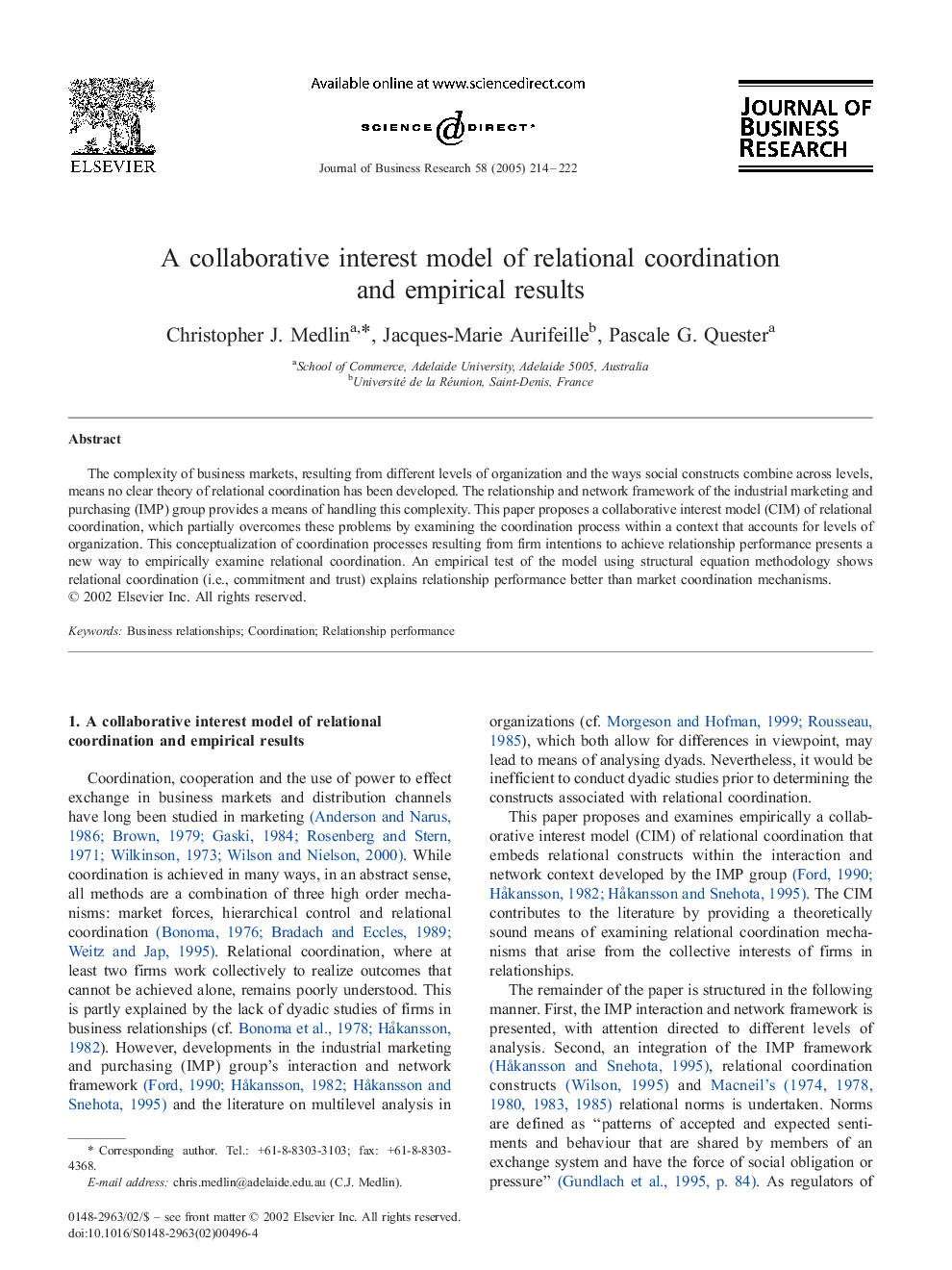| Article ID | Journal | Published Year | Pages | File Type |
|---|---|---|---|---|
| 10493524 | Journal of Business Research | 2005 | 9 Pages |
Abstract
The complexity of business markets, resulting from different levels of organization and the ways social constructs combine across levels, means no clear theory of relational coordination has been developed. The relationship and network framework of the industrial marketing and purchasing (IMP) group provides a means of handling this complexity. This paper proposes a collaborative interest model (CIM) of relational coordination, which partially overcomes these problems by examining the coordination process within a context that accounts for levels of organization. This conceptualization of coordination processes resulting from firm intentions to achieve relationship performance presents a new way to empirically examine relational coordination. An empirical test of the model using structural equation methodology shows relational coordination (i.e., commitment and trust) explains relationship performance better than market coordination mechanisms.
Related Topics
Social Sciences and Humanities
Business, Management and Accounting
Business and International Management
Authors
Christopher J. Medlin, Jacques-Marie Aurifeille, Pascale G. Quester,
